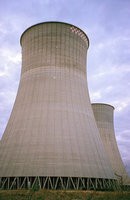Loading your audio article
Earlier this month, Abu Dhabi officially green-lighted construction of its first nuclear power plant, under the stewardship of the Korea Electric Power Corporation (KEPCO), at the Braka site located just west of the Emirati capital. The historic construction marks the first nuclear power plant on the Arabian Peninsula and highlights how the oil-flush region has been forced to recalibrate its energy strategy in light of soaring demand for electricity. The move also acts as a soft hedge against the potential weaponization of Iran’s nuclear program, which is a primary security concern for the United Arab Emirates (UAE) and its neighbors in the Gulf Cooperation Council (GCC). For Seoul, it represents a successful first step toward establishing itself in the region as a trusted energy and commercial partner.
Seoul’s ties with the UAE became a top-tier priority after KEPCO beat out a Japanese-American consortium in 2009 for the lucrative multibillion-dollar deal to build four nuclear reactors for the emirates by 2020. The contract, reported to be worth nearly $40 billion, was a key foreign policy coup for South Korea and another sign that it is able to forge new partnerships in regions where it previously had little diplomatic capital. The contract remains the linchpin of bilateral relations between Seoul and Abu Dhabi, but South Korea is quickly moving to challenge Japan’s established influence in the Middle East through its aggressive style of business diplomacy. The move also sends notice to China that its targeted approach to seeking energy security in Africa has consequences, with established partners in the Middle East looking elsewhere for potential relationships.
The building phase of the Braka plant was temporarily scuttled last year as a result of the Fukushima nuclear crisis and its effect on the global nuclear safety regime. However, the UAE insists that it has learned the lessons from Fukushima and is committed to the construction and maintenance of a safe plant and, more broadly, a transparent industry. William Travers, director general of the Emirati Federal Authority of Nuclear Regulation, recently stressed that the state body “will continue to be conscious of our responsibility [to ensure] that nuclear power in the UAE is used safely, securely and only for peaceful purposes.” KEPCO, which will continue to operate the Braka plant after its two reactors are completed, is slated to build an additional two reactors for the UAE. The first reactor at the Braka plant, which will supply energy for manufacturing, household electricity and water desalinization, is scheduled to be operational by 2017.

